Piolets d'Or Announces the "Significant Ascents" of 2023
This list of 68 climbs is effectively a "long list" used to select nominees of the prestigious alpine award.
"There was wildlife, untouched, a jungle at the border of the sea, never seen by those who floated on the opaque roof." – Jacques Cousteau after his first underwater experience.

Becoming a scuba diver can completely transform your life. Underwater, your everyday troubles can feel immeasurably small and you feel part of something profoundly great.
Learning to scuba dive not only changed my life, but it also became my life. After earning my scuba certification at 16, I knew I needed to become a scuba instructor. It wasn't easy in the beginning, being a girl, being in Mexico. I had to learn English and earn enough money to buy my diving gear. The only easy part was working hard for something I loved.
Scuba diving will change the way you see things, topside and underwater. The simplest things become extraordinary, even light reflections. Diving makes you feel like a nature expert, an explorer whose every action could be narrated by Sir David Attenborough.
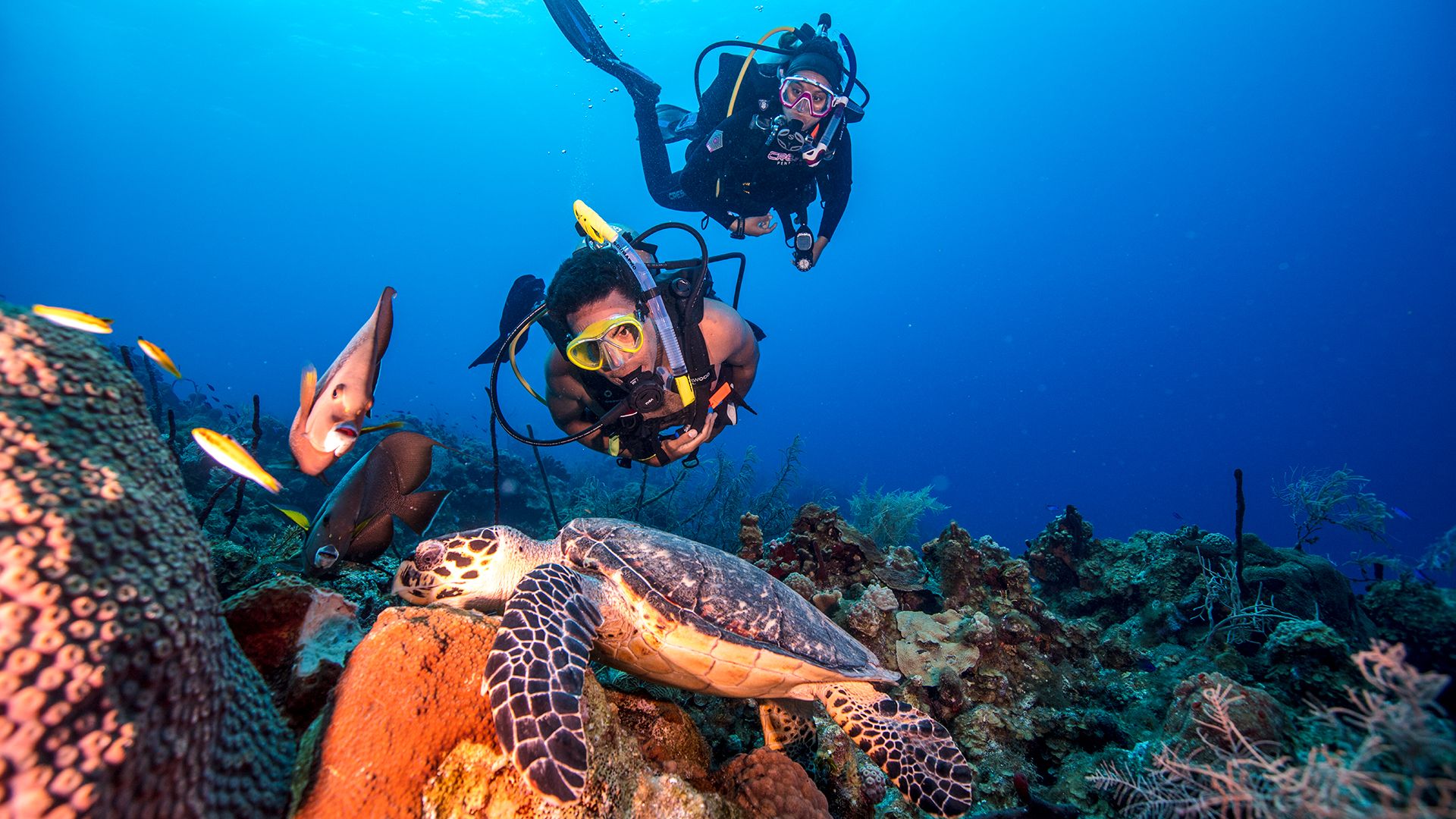
Becoming a diver can change your life out of the water as well. It can be something small like constantly checking your gas when you’re driving or big, important things like rejecting single-use plastics and carrying a reusable water bottle.
When you start finding bottle caps and plastic rubbish at the beach instead of seashells, and when you can differentiate a healthy reef from a crushed or bleaching reef you will reconsider what seafood you eat, what sunscreen you use, and choose eco-friendly tourism destinations for your vacation instead of casinos or big cities.
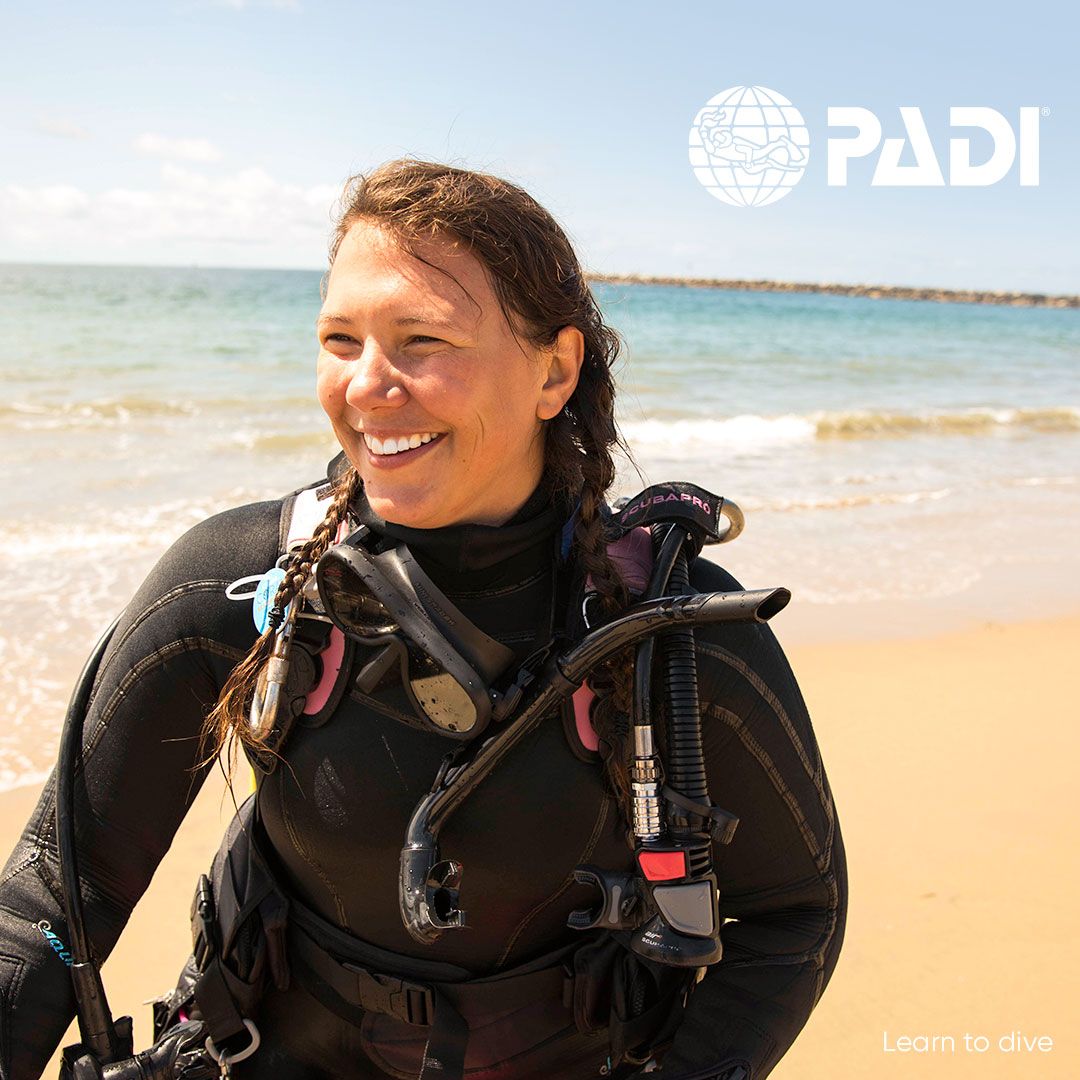
How to Become a Scuba Diver in 3 Easy Steps
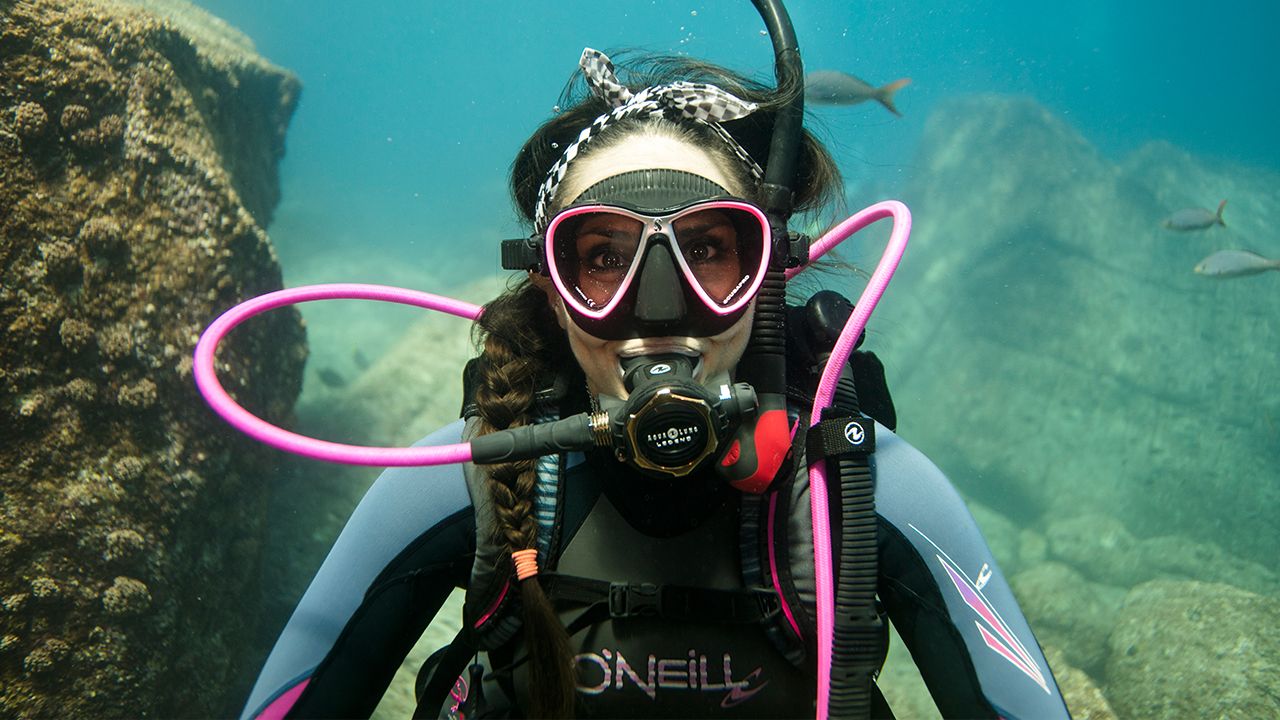
There are 3 steps to becoming a certified scuba diver. You need scuba certification to book a scuba diving excursion, rent scuba equipment and, perhaps most importantly, dive with confidence. It’s a bit like a driver’s license, but for scuba diving. The open water scuba certification offered by PADI (Professional Association of Diving Instructors) is the most-recognized scuba certification in the world, and the scuba program I teach.
STEP ONE: Absorb knowledge
First, you'll learn about dive theory by studying at home or at a PADI Dive Center or Resort. You can use a book and DVD, or watch videos and complete quizzes online. You’ll learn the fundamentals of scuba diving and preview the scuba diving skills you’ll practice during your in-water training sessions.
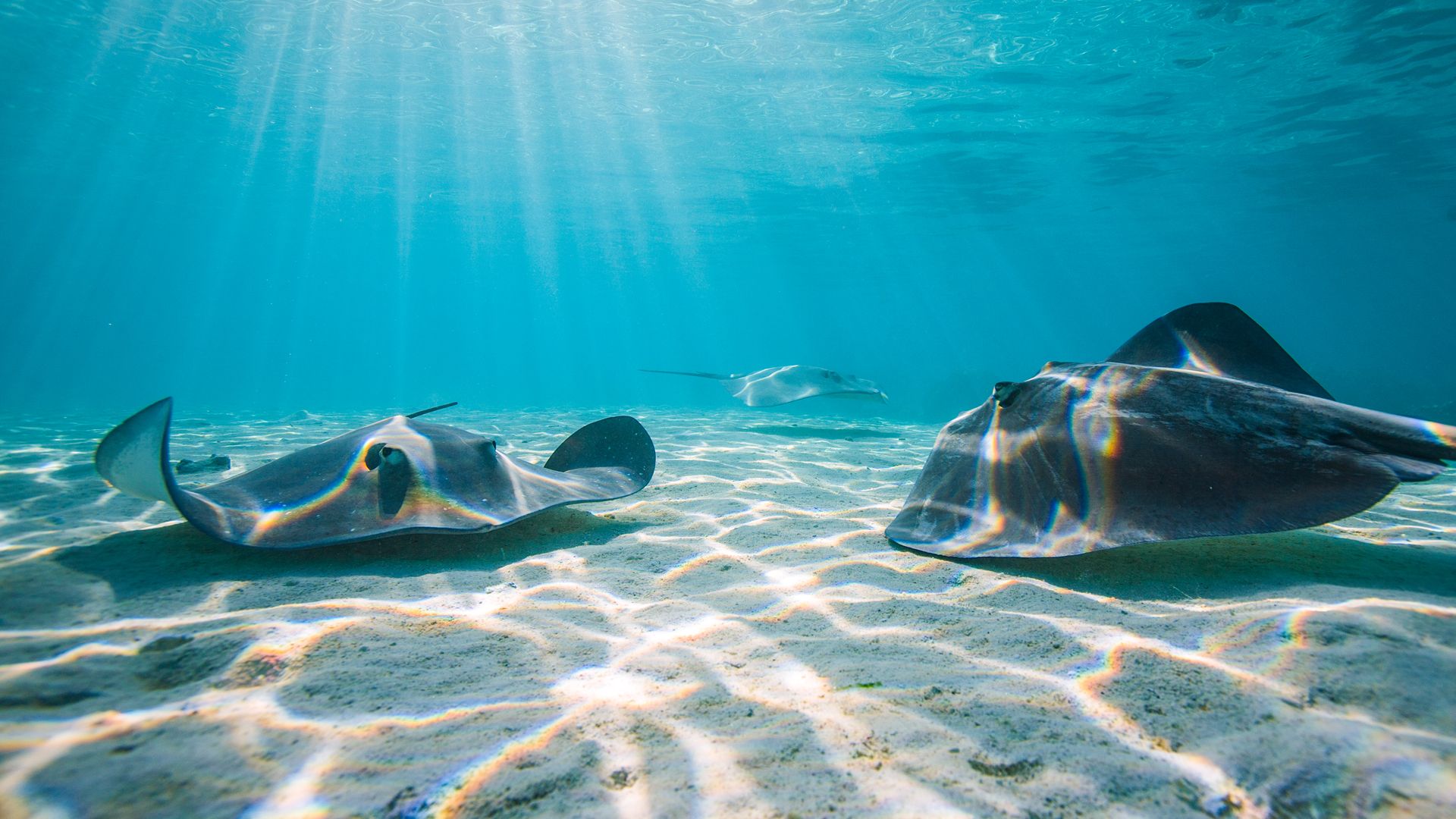
STEP TWO: Get your feet wet
Next, you'll spend time with a PADI Instructor in a pool practicing and mastering scuba skills that will help you be safe and comfortable underwater. When you feel confident, you’ll move on to step three.
STEP THREE: Take the plunge
The third step is diving in open water. Here in San Diego, we do our four checkout dives at La Jolla Shores, a flat and sandy beach. This is where I get to show students what California diving is all about. We start early to get the best of the tides, wind and swells. We do two dives each day and have lots of fun in between. We bring snacks, take pictures, talk about the marine creatures we saw and log our dives.
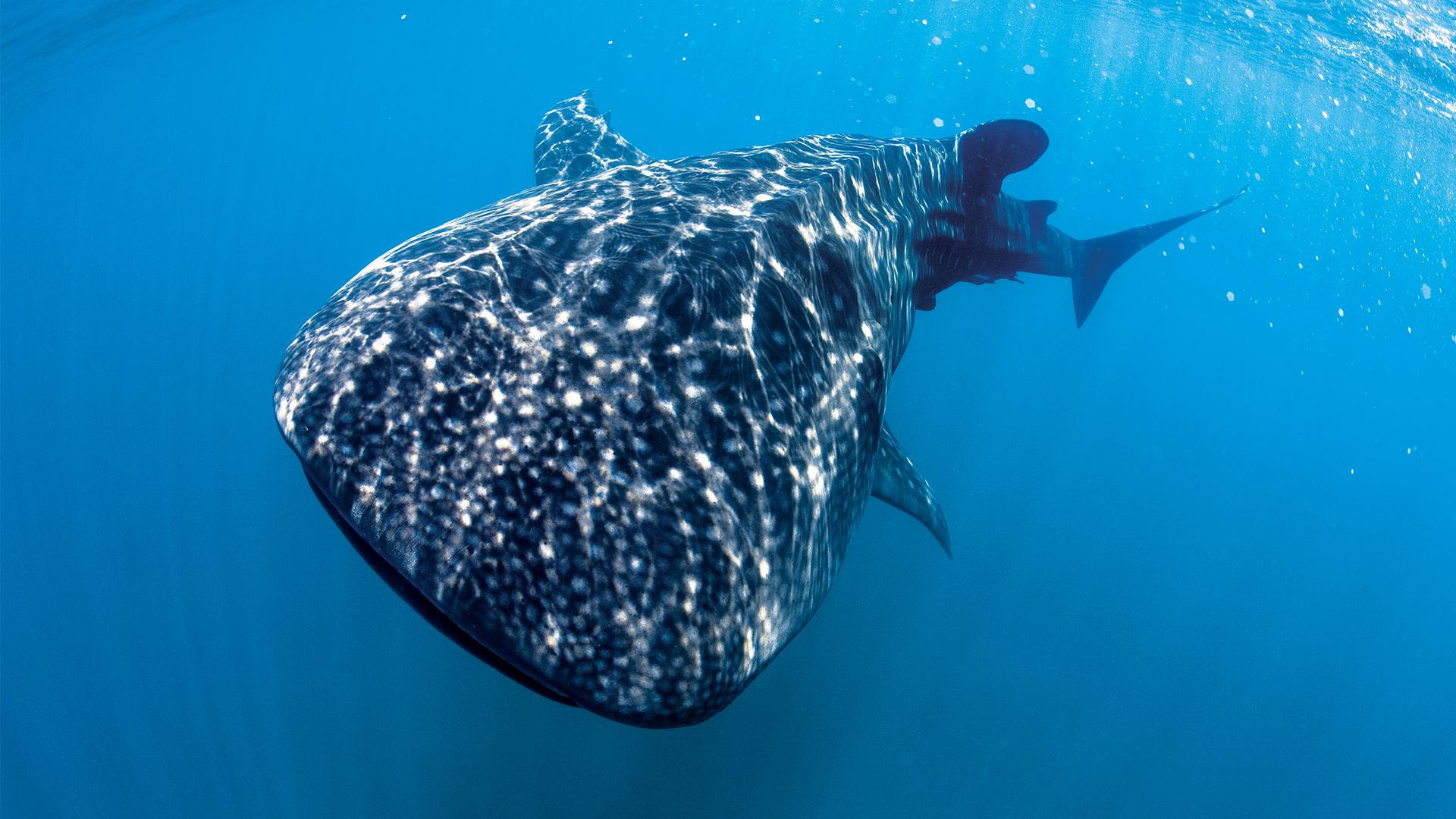
Depending on where in the world you do your scuba course, you might dive from a boat, into a lake or even slide into some hot springs. No matter where you do your training, learning to dive is a transformative experience you will remember for the rest of your life.
Frequently Asked Questions
The things my students ask about most frequently are really their concerns: fear of the unknown, or uncertainty about their physical ability. I remind them diving is a safe and fun sport provided you follow all the rules, even the simple ones. Listen carefully to the dive briefings so you know what to expect underwater and what to do in case of an emergency. Lastly, always plan your dive and dive your plan.
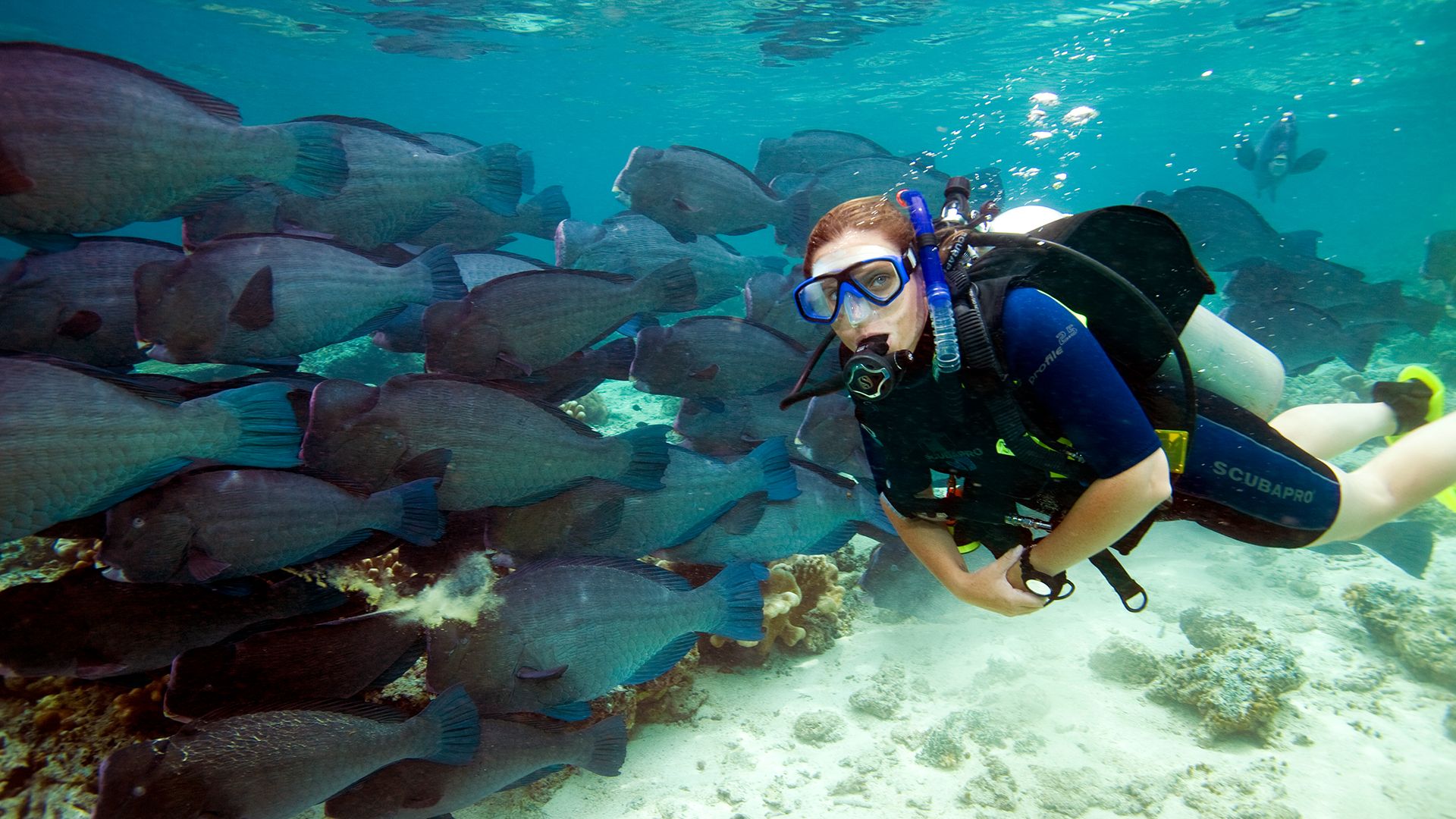
Here are a few of the most common questions I get asked about scuba diving:
Do I need a dive buddy to sign up for a scuba class?
One of the most important scuba safety guidelines is always dive with a buddy, but you don’t need to sign up for a scuba class with a partner. Depending on the size of the class, the instructor might pair you up with another student or a dive professional such as a PADI Divemaster. Once certified, you can join dive clubs to meet people with a ton of experience who will welcome you to the sport and share their knowledge. After all, we were all new divers once.
Do I need to be a good swimmer?
If you are an avid snorkeler, chances are that you will be a great diver. Also, diving is a very accessible sport. It’s not uncommon for people with paraplegia, amputations and other physical challenges to become certified divers.
Every freediving and scuba diving student must demonstrate they can continuously swim 200 metres/yards, or swim 300 metres/yards wearing a mask, fins and breathing from a snorkel. It makes sense, right? After being in the water for an extended period, we need the ability to get back to the boat or shore safely. During your PADI Open Water Diver course, you’ll also complete a 10-minute surface float in water too deep to stand up in. This is possibly the most relaxing test you will ever take.
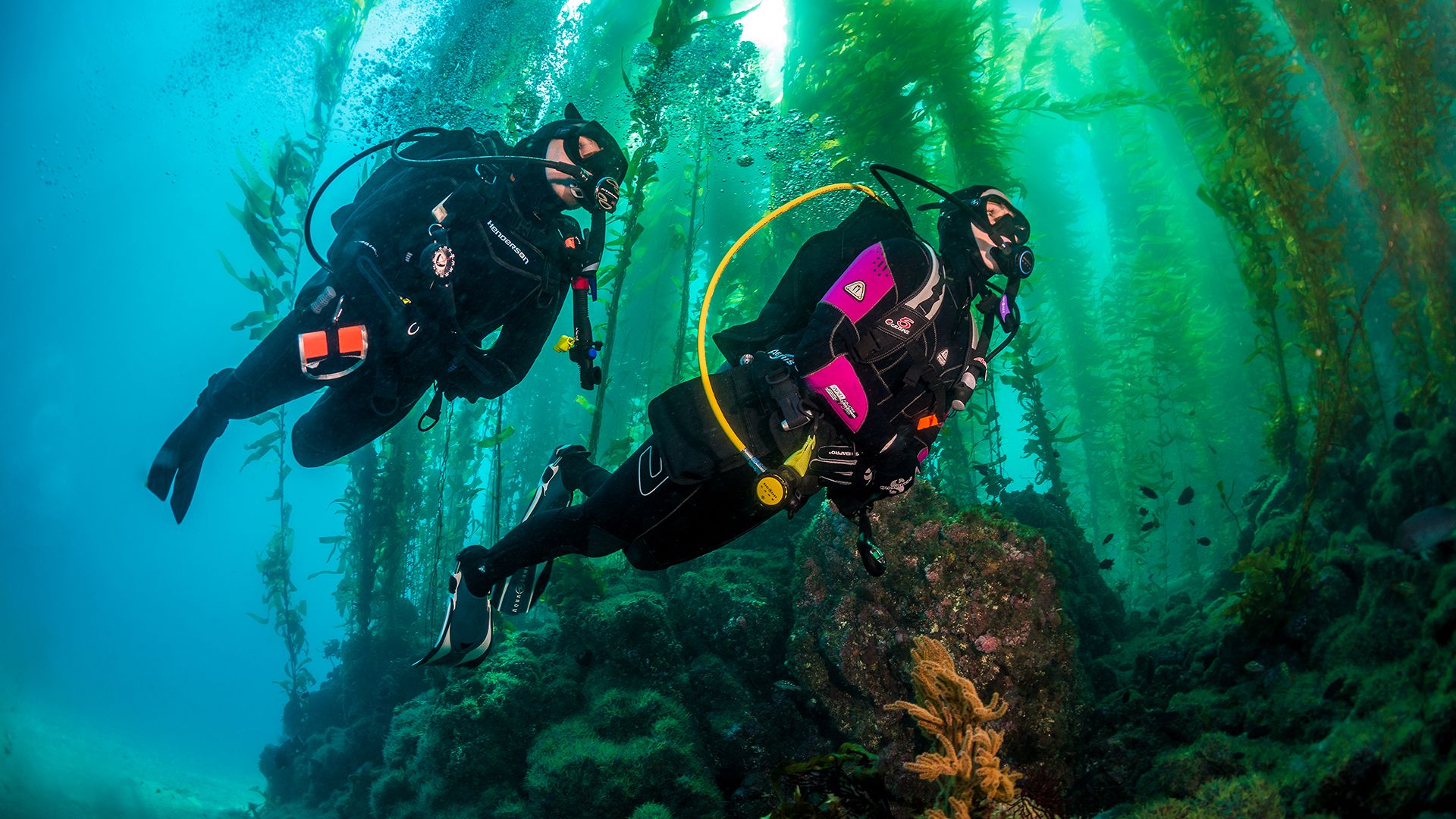
What if I have medical issues?
Completing a medical questionnaire is part of signing up for a PADI scuba diving class. People with certain medical conditions must get a doctor’s approval to learn to dive. It’s better to be safe than sorry. If you have concerns, ask a PADI Dive Center for a copy of the questionnaire so you can review it with your doctor. If your physician isn’t familiar with scuba diving and its effect on the body, they can consult with a medically-trained diving professional at Divers Alert Network.
How often do I need to dive to keep my certification current?
Your scuba certification never expires; however, it’s important to keep your diving skills sharp. Let’s say you haven’t been diving in six months or more; it’s better to do a quick scuba refresher in the pool rather than discover you forgot how to clear water from your mask when you’re in the middle of a dive.
What if I see a shark?
As every diver knows, if you see a shark you must immediately reach for your camera and prepare to take an awesome shot because you are the luckiest diver ever! Sharks are strong and elegant swimmers, but also very shy. In fact, most are terrified of humans and their noisy bubbles. Sharks are the keepers of the reef and seeing sharks during a dive is a sign of a healthy reef and an eco-friendly diving community.
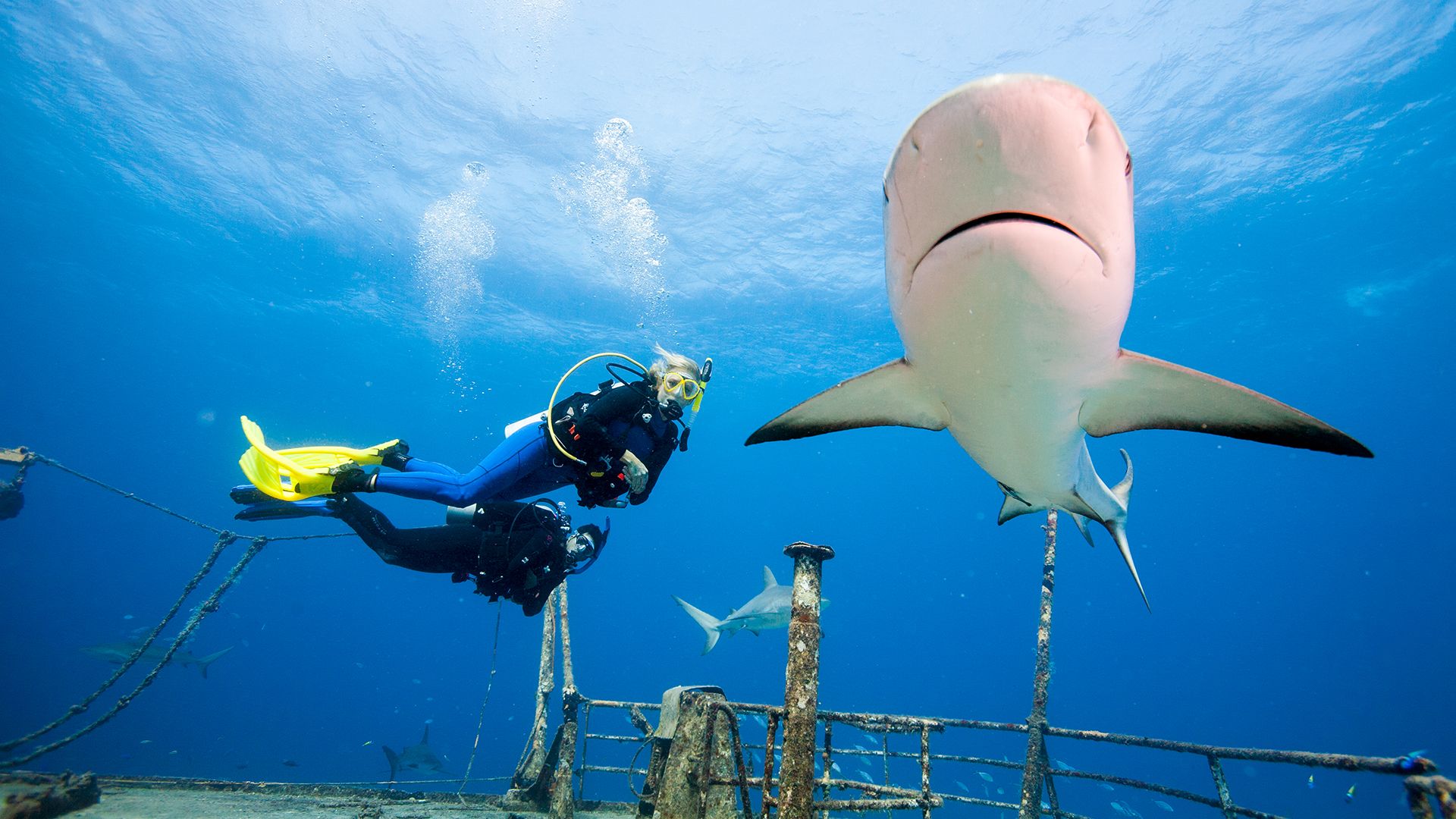
Nearly every dive spot in the ocean has a local shark population. Here in San Diego, our dive sites are home to seven gill sharks, leopard sharks, horn sharks, angel sharks, swell sharks and guitarfish (a type of shark). Most don’t grow larger than 1.2 metres/4 feet long.
How is freediving different from snorkelling and skin diving?
Snorkelling is all about observing the reef from above. You wear a snorkelling mask and smaller fins and it’s a very relaxing experience.
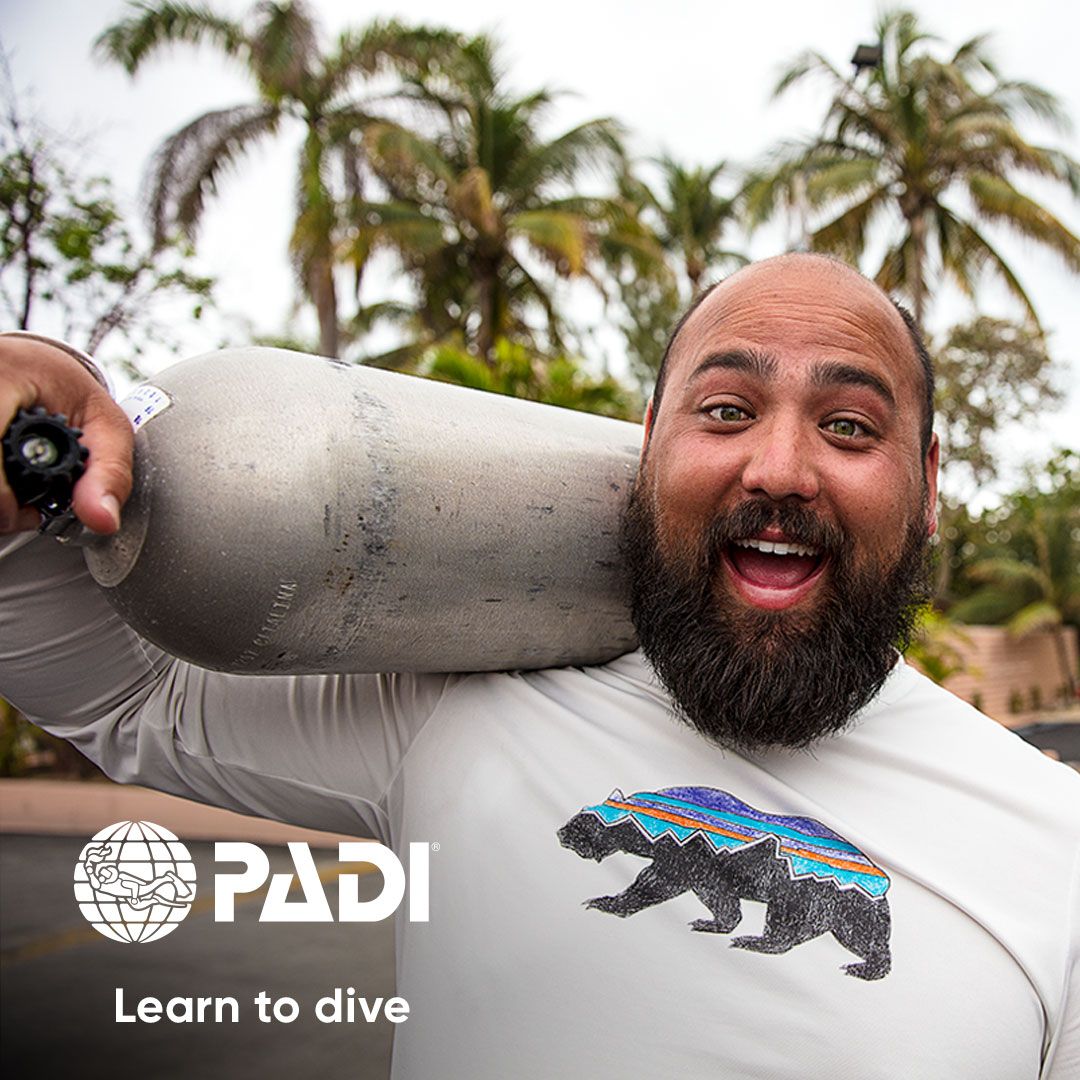
Freediving requires skill and proper training. The PADI Freediver course can help you develop the knowledge and techniques to maximize your time underwater on a single breath. It’s a graceful sport that lets you get much closer to nature than scuba or snorkelling, but it can't be done for long periods because your body needs rest from the stress of breath holds.
Oh, the places you’ll go...
Becoming a scuba diver has paid off beyond anything I could have imagined when I was young. They say when you have a job you love, you'll never work again. Thanks to the dedication, commitment, sacrifice and passion, the tides brought me to San Diego, California where I work as a PADI dive instructor and instructor trainer. It is also where I met and married the love of my life and dive buddy, Jeff Bunker.
The underwater world is a beautiful realm hidden from the masses who are content to float on the opaque roof. When you need to forget all the stress of a long week, when you are feeling overwhelmed, remember there is a place where our problems don't matter. For those who crave an escape from mundane, terrestrial life, scuba diving is the ultimate getaway.
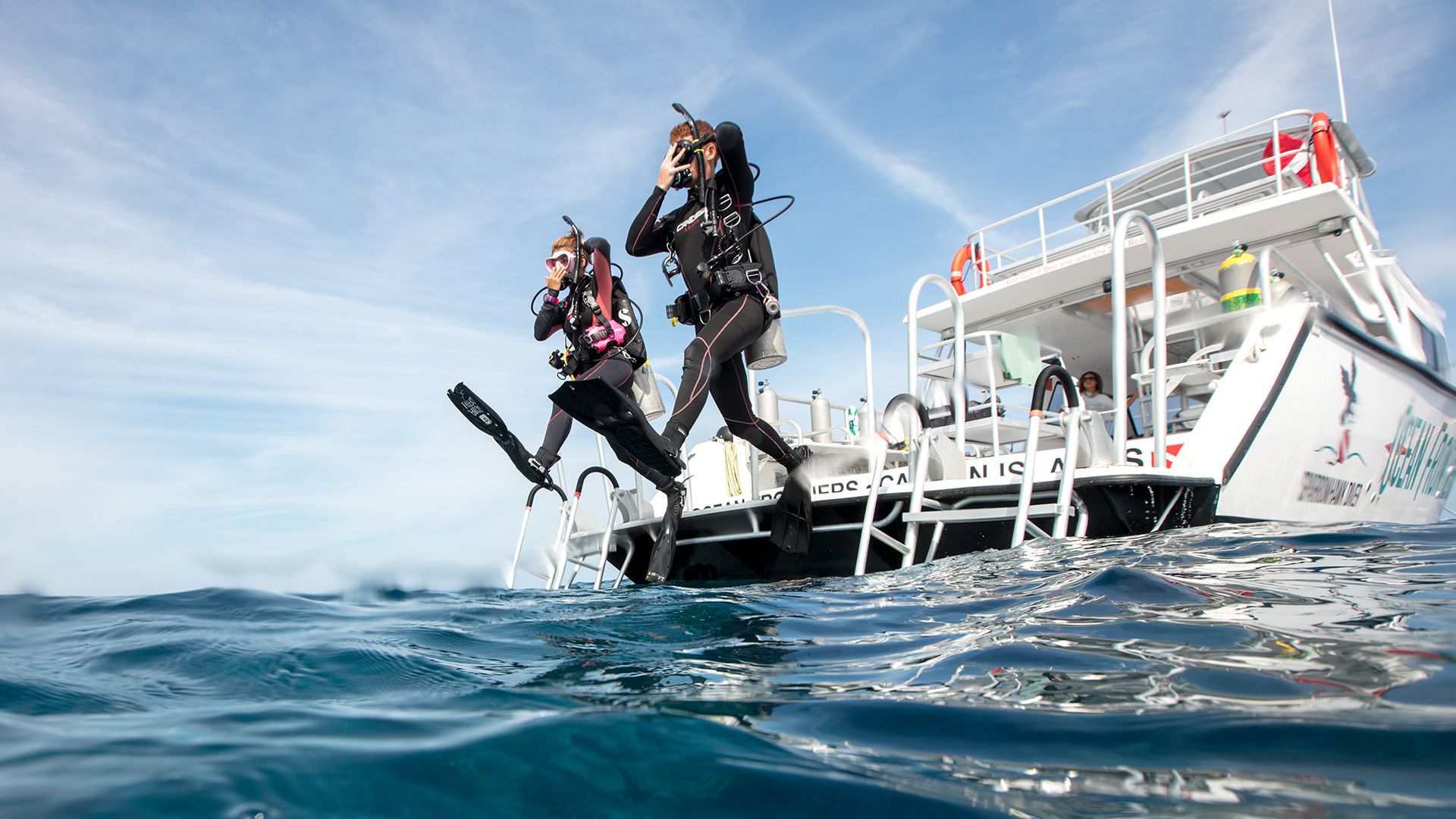
You can follow Rocio Gajon Bunker on Instagram here, or to get started with your new diving journey, click here.
2nd best newsletter in the universe